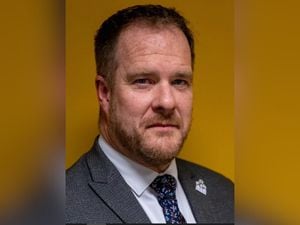More cash needed for schools' Covid recovery, Williamson says
Gavin Williamson has conceded that more money will be required to help children recover learning lost during the pandemic.

The Education Secretary described a funding package totalling £3.1 billion as a “pretty hefty amount” but would not be drawn over suggestions he had requested an extra £5-6 billion.
He also said there was a “strong case” for longer school days but that shorter summer holidays to help pupils catch up were no longer being considered.
Sir Kevan Collins, the coronavirus catch-up tsar, resigned over the issue, saying the funding “falls far short of what is needed” and criticising a “half-hearted approach” that “risks failing hundreds of thousands of pupils.
He had reportedly called for £15bn of funding and 100 extra hours of teaching per pupil.
The package, announced yesterday, will see schools get an extra £1.4bn over three years in addition to the £1.7bn already announced. It will include £1bn for 100 million hours of tutoring and £250m for teacher training and development.
School leaders branded the funding “pitiful” and claimed it amounted to just £50 extra per pupil.
South Staffordshire MP Mr Williamson said of the funding: “It is quite unprecedented to be getting this quantum of money outside of a spending review.”
But he added: “I have no doubt that in order to deliver everything we have ambitions for, for our children, there will be more that is required.”
Geoff Barton, general secretary of the Association of School and College Leaders (ASCL), denounced the funding as “dispiriting”.
He said: “It’s pretty pitiful. The announcement essentially equates to £50 per head; you compare that with the USA, which is putting £1,600 per head, per young person, or the Netherlands, £2,500 per head.
“It’s time to stop the rhetoric, I think, and start the action on behalf of children and young people.”
Last night Boris Johnson insisted more money for schools would be "coming down the track".
Councillor Chris Towe, portfolio holder for education and skills at Walsall Council, said: “I am pleased to see any increase in schools funding that will support children at this time.
“As yet it is too soon to comment on any additional hours for schools in the borough – but we will consider all options and as always continue to engage and work with our schools, children and families on their collective learning journey.”
Sukhjot Dhami Headteacher at Beacon Hill Academy in Dudley outlined his school’s catch-up programme.
“We will be running a summer school in the second week of the summer holiday to help Year 10 students who are doing their GCSEs next year and Year 6 students who are due to come up to us in September," he said.
“They have been short-changed this year and we want to make sure they get off to the best of starts.
“Our staff have been giving virtual lessons at the weekend for targeted GCSE students in Key Stage 4 and private tutors are giving one-to-one tuition to help children catch up.”
Regarding the level of funding Government has pledged for the catch-up plans, Mr Dhami said: “I think it is hard to know at this moment in time the long term impact of Covid and whether the funding will be ongoing or a one-off for this academic year.
“It is not just students in Years 10 and 11 that need to catch up - it is all year groups.
“There is always a shortage of funding in education but we need to see the detail of the proposals and whether the money filters through to school budgets.”
Jonathan Price, Staffordshire County Council’s cabinet member for Education, said the extra funding was "a good thing".
“Additional funding has also been made available to support our youngest children to focus on key areas such as speech and language development, which is a building block to learning," he added.
“Schools already offer a great deal of extra-curricular activities outside the normal school day and we, like them, await the result of a review of time spent studying and how that is to be addressed while supporting the health and wellbeing of the school community.”
The DfE’s programme includes £1 billion to support up to six million, 15-hour tutoring courses for disadvantaged pupils, as well as an expansion of the 16-19 tuition fund which will target subjects such as maths and English.
A further £400 million will go towards providing high-quality training for early years practitioners and school teachers to ensure children progress.
A review into school hours is due to be set out later this year.





